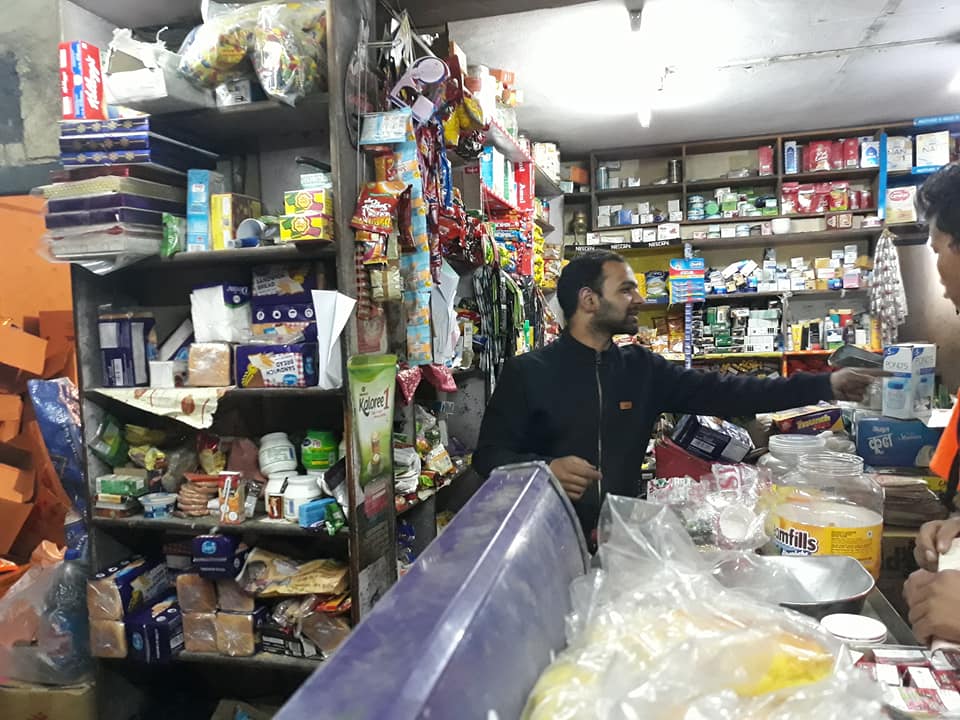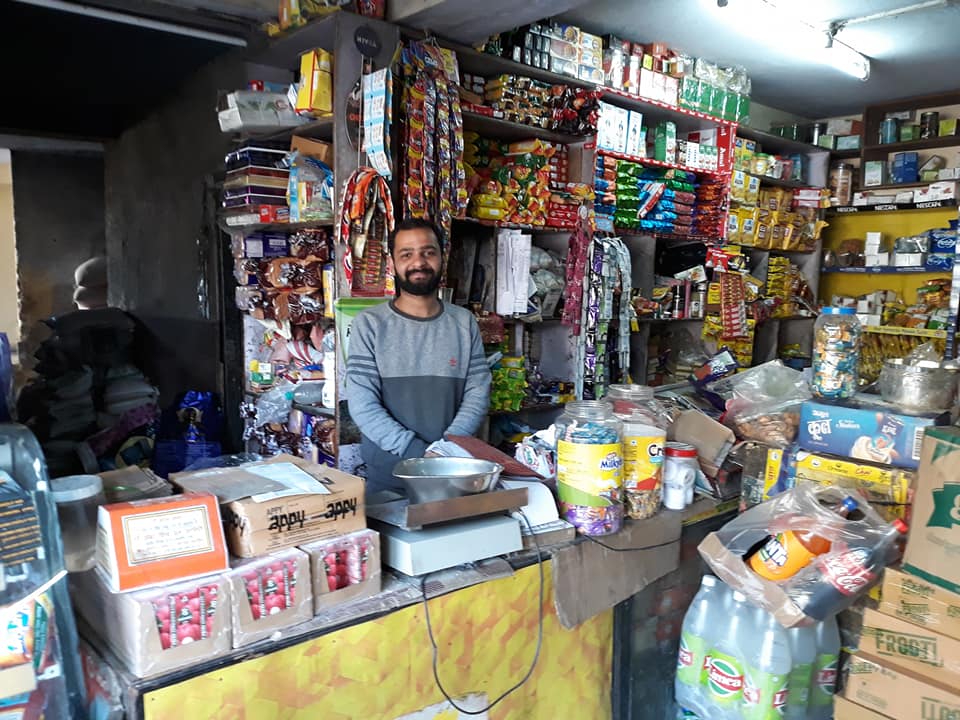
In Germany we call small shops which provide alldaily needs ” Aunt Emma shops”. These days they hardly exist anymore next to all these big super markets. But in India you still have them! If you do your daily shopping in India, you go to the so-called “Bazaar”, the Indian market. There are vegetable stalls, dairy shops, bakeries, pharmacies, candy shops andof course the “Aunt Emma shops” where you get simply EVERYTHING you wish for.
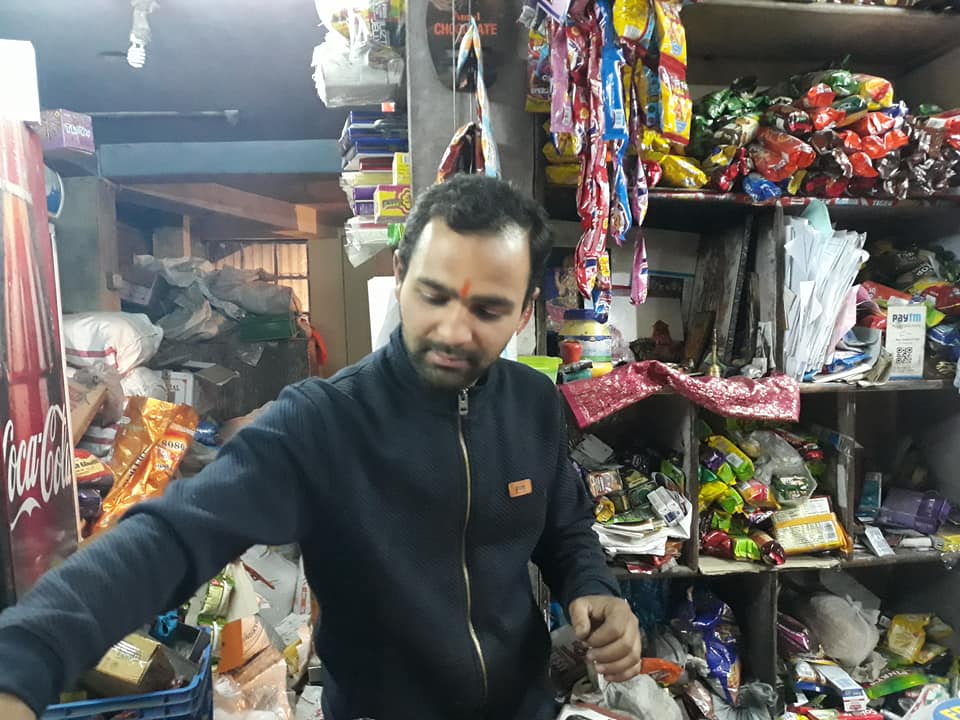
Such a store is in the possession of twenty-two-year-old Rishab. A year ago, he took it over from his retired father. Now he runs the shop alone, with his mother or father coming to the store to help from time to time, when Rishab is taking a lunch break or his mom wants to be among people. (The family lives above the store.)
Otherwise Rishab is ALWAYS there. From 10 am to 9 pm and during that time the customers, often 3 to 8 at once, all want to be served immediately.
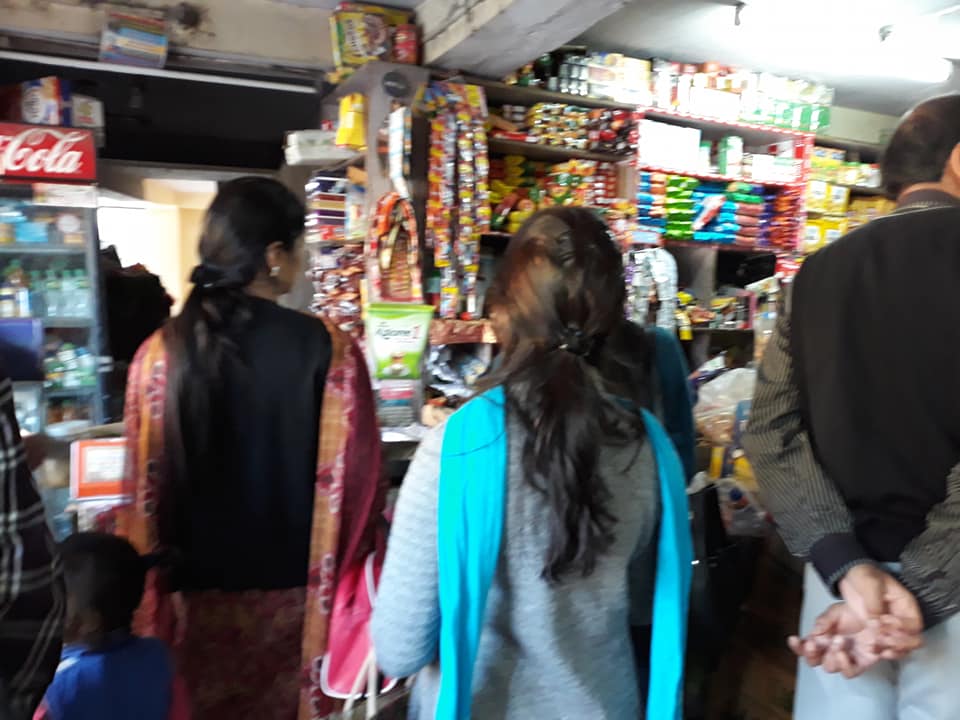
The shop from the outside seems quite inconspicuous, but inside there is a lot going on. It is not uncommon as a shop to be a meeting place.
In Rishab’s shop there is almost everything your heart desires: various lentils and rice varieties, yogurt, milk and cheese, shampoo, detergent and soap, nuts, dried fruits and seeds, sauces, spices and snacks, sweets, drinks and, and, and… Even cigarettes are sold here by single piece.
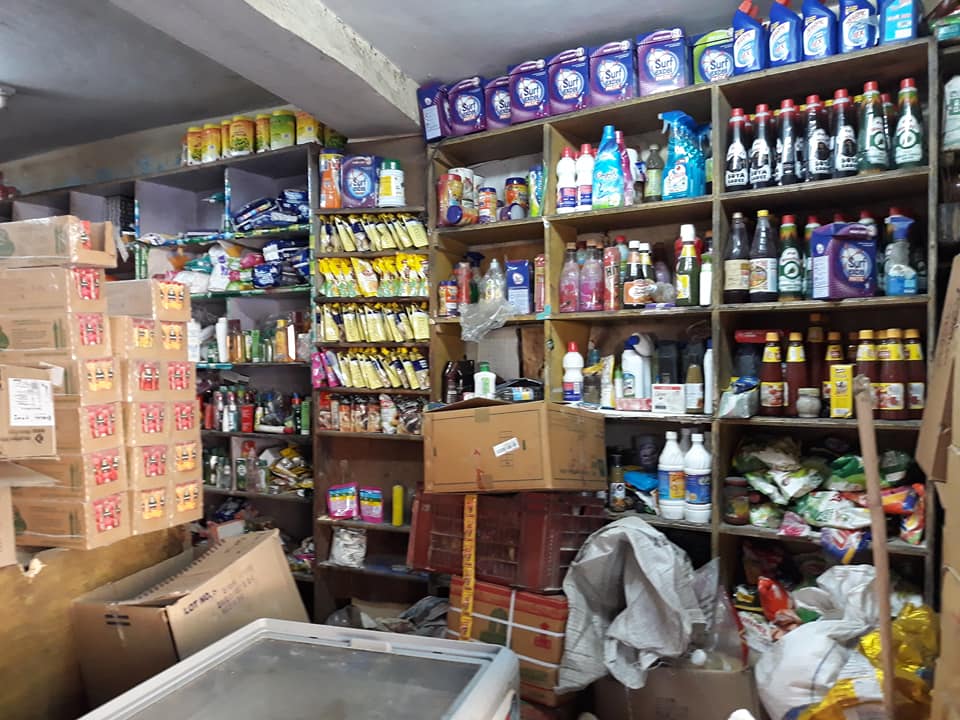
The shop is full of stuff up to the top and only Rishab himself knows where what item is located.
Rice, lentils and nuts are all sold from openb big bags So it takes time for Rishab to weigh, pack, search, combine and take care of customers.
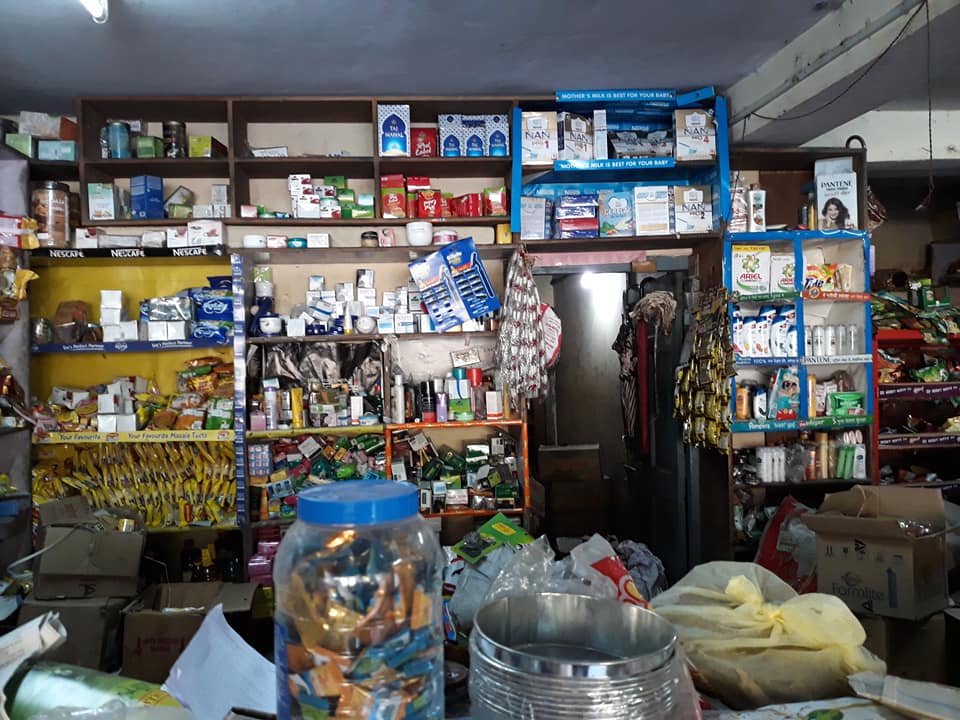
But Rishab has developed its own system to satisfy his customers. He simply serves everyone at once: he takes orders, gets products, takes the payment- running here nd there. Customers are surprisingly patient. You have no other choice. Not infrequently I am in Rishab’s shop for 10 minutes, just to buy a pack of milk and toothpaste.

Rishab’s ability to remember is astonishing: he keeps exactly in mind, what each customer has bought quickly calculates the total amount.
He also gives one or the other rupee discount – one knows each other. Even writing down the amount to pay later is not uncommon.
